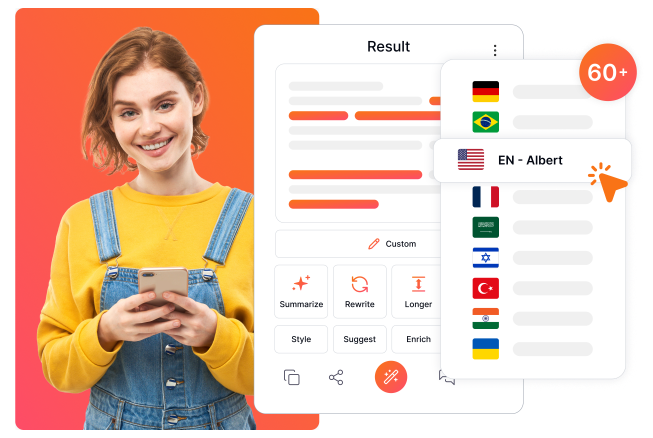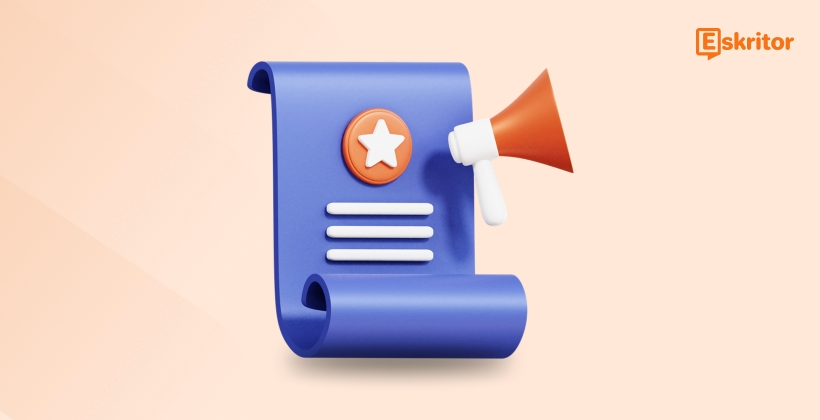Why AI Writers Are Essential for Modern Businesses
Why AI Writers Are Essential for Modern Businesses
Blog Article
The Future of AI Writing Technology Explained
Synthetic intelligence (AI) publishing technology has developed quickly within the last decade, reshaping the way we create and connect to published content. From syntax modification resources to AI-generated books, the number of choices look limitless. But where exactly is this technology heading? Let's discover the inventions, problems, and possible potential of AI Editing.

How AI Publishing Engineering Performs Today
At their key, AI writing technology depends on Organic Language Handling (NLP) and machine learning. These technologies permit designs to know, produce, and improve human language. Tools accessible today do well at projects like:
1. Material Generation
AI has reached a spot wherever it can create total website articles, social media marketing captions, and actually information articles. Some designs can handle mimicking human writing models so effectively that distinguishing between AI- and human-written content has become increasingly difficult.
2. Grammar and Type Recommendation
AI-powered publishing assistants don't just always check for grammar and spelling problems; they also offer recommendations to boost tone, quality, and sentence structure, making complex writing accessible to a broad audience.
3. Sentiment Analysis
AI can assess the psychological tone of a piece, enabling companies to assess how their communications will resonate with readers. That is particularly useful in marketing and customer interaction.
The Current Styles in AI Publishing Technology
Many developments are shaping another phase of AI-powered writing instruments:
• Personalization
AI publishing technology is significantly effective at tailoring material to personal preferences. Types may adjust to a user's writing fashion, ensuring the result thinks authentic.
• Multilingual Abilities
Several AI instruments are growing their international achieve by offering enhanced interpretation functions and support for multiple languages.
• Improved Research Functions
AI resources today possess the capacity to analyze large amounts of knowledge and present fact-checked, well-researched publishing in moments, simplifying the method for professionals in industries like law, fund, and journalism.
What the Future Keeps for AI Publishing Technology
1. Increased Imagination
While current AI is proficient at generating material, its imagination remains restricted to patterns within their instruction data. Future AI is not only expected to aid but to create unique, topical performs that problem individual imagination.
2. Easy Venture
Envision an AI that works along side you in real-time, doing your sentences, conducting live edits, and actually brainstorming ideas. AI writing resources may shortly become co-authors, enabling creativity to movement uninterrupted.
3. Honest and Available Design
With rising concern about plagiarism, misinformation, and opinion, developers work toward more translucent AI teaching procedures and moral implementation. Future instruments will more than likely present more comprehensive citations and procedures to ensure accountability.
Issues and Considerations
The evolution of AI publishing technology is not without hurdles, including:
• Ethical Problems

Who owns content developed by AI? How can we assure AI-generated material isn't distributing misinformation? These debates remain unresolved.
• Human-AI Stability
Can AI complement human imagination or completely replace specific tasks? Many authors and artists be concerned about their relevance within an AI-driven world.
• Accessibility Divide
Not totally all organizations or parts have similar use of cutting-edge AI tools, raising questions in regards to the influence with this technology on international inequality.
Adjusting the Way We Write
AI writing engineering remains in its infancy in comparison to its potential. Whether you are a student designing essays, a content marketer targeting unique audiences, or even a novelist seeking creativity, AI methods can continue to revolutionize the writing process. The next decade promises breakthroughs that blend human ingenuity with machine intelligence, creating a potential wherever publishing is more effective, available, and impactful than actually before.
Report this page